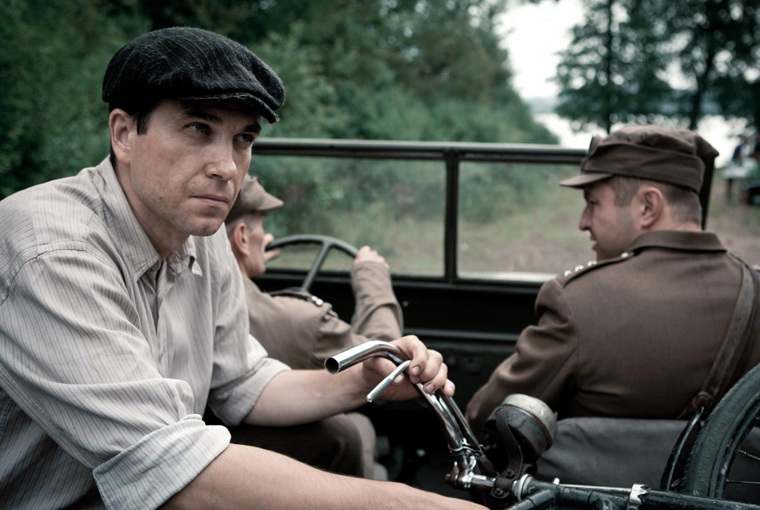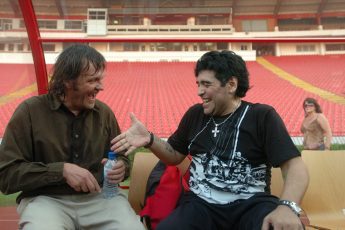The Historical Wave
Wojciech Smarzowski’s Roza (Róża, 2012)
Vol. 38 (February 2014) by Moritz Pfeifer
Recently, historical films are enjoying heightened popularity in Poland. Only considering the last three years (2011-2013), 30 of the around 120 (roughly one out of four) feature films produced in Poland were historical films set before the 1990s. Of these, almost half are about the Second World War.1 This wave of historical films is an unseen phenomenon in the history of Polish cinema. While films about the past have always been successful, and films about WWII especially important to Polish film history, the past has never appeared as dominant as it does today. Why does WWII remain such a popular subject in Poland? In what ways are recent films about WWII different from earlier ones? Is there a general interest for History within the Polish audience or is at an artistic/aesthetic trend? What reason may there be for History to be revisited/rewritten? What does the new historical wave reveal about the present? Does the preoccupation with the past run parallel with a lack of interest for contemporary Poland?
I will try to answer some of these questions in this article and will continue discussing them and topic related films throughout this year’s focus on Poland. This month, I would like to take a look at Roza (2012), a film by Wojciech Smarzowski which takes place during the aftermaths of WWII. The film won the highest award of the Warsaw Film Festival and took home another seven honors during the Polish Film Awards. After In Darkness and My Father’s Bike it was the highest grossing film of the year. Variety compared it to Frantisek Vlacil’s Adelheid, and claimed that Smarzowski deserves the title of an internationally recognized auteur.
His film tells the story of Róża (Agata Kulesza), a Masurian woman whose husband died in the war. She is now left alone on their farm in Masuria, a region which used to belong to Prussia but was declared Polish after the Potsdam Conference. The German-speaking leftovers in the region fell prey to the humiliations of the Poles who started to resettle the region as well as to the soldiers of the Red Army, notorious for celebrating their victory with mass rapings. When Tadeusz (Marcin Dorocinski) comes to the region as a veteran of the Warsaw Uprising, he agrees to take care of Róża’s farm and protects her from the bloodthirsty Poles and Russians. He demines her field, plants potatoes and gradually transforms the farm into a defensive fortress, re-mining its outer boundaries and keeping Róża hidden, who has been raped so many times that she is agonizing, in a darkened room.
The civil-war-like conditions that set in after WWII and the atrocities committed by nationalist Poles against German-speaking minorities that have lived in Masuria for centuries give Wojciech Smarzowski the opportunity to deconstruct two historiographical fairy-tales, namely the demonizing of the Germans as oppressors, and of the Russians as the ones replacing them. While the lionization of the Russians as the liberators of Poland already seized to dominate films by the 1950s, it took substantially more time to stop depicting Poles as national heroes. Wajda’s The Condemnation of Franciszek Klos (2000) is one of the first films to explicitly depict Polish collaboration. It marks the end of a century obsessed with celebrating the Poles as either victims or heroes. Smarzowski shows this rather bluntly. Róża not only gets raped and her house plundered by Russians. The pro-Communist Poles working in the area pay her at least as many visits, and Tadeusz is really fighting against them.
Sadly though, Smarzowski’s film, although his effort to depict Polish betrayal and opportunism in the aftermaths of WWII is laudable, does not refrain from the classic good-vs.-bad scenario that dominated 20th century cinema. His hero, Tadeusz, is an almost cowboy-like stoic. His past is clean, since he fought with the Home Army, he helps those that are innocent and punishes those that are bad. The defense of the farm quickly turns into a clichéd Seven-Samurai-scenario and Tadeusz into an incredulous avenging angel. The film’s aesthetics follow suit. The brownish grainy filter adds an element of kitsch to the otherwise hyper-realistic portrayal of human atrocity. One wonders whether Smarzowski was really concerned with Polish history or whether he really wanted to shoot a western, and just decided that the story of the Masurians would be a suitable setting. In the end, Smarzowski historical P.O.V. is not different from that of the 1950s: the Polish are suffering, but there is the hope of individual heroes who fight back. Roza only shifts the source of the suffering.
If Smarzowski would be really concerned with rewriting history in a way that would reveal Polish participation in Nazi/Soviet crimes, then why would he concentrate his story on a victim and a righteous hero in her defense? It is easy to identify with a victim and a hero. It is much harder to understand the villains and even harder to accept that most of them just followed the standard operating procedures of their time, i.e. that they were not perceived as villains. To retroactively invent characters like Tadeusz who get the morals right, is to rewrite history with the techniques of a fairy tale. What really needs revision are those mythifying scripts which claim to have neatly defined one’s protagonists. Memory culture is more than just heroes, villains, and victims.




Leave a Comment